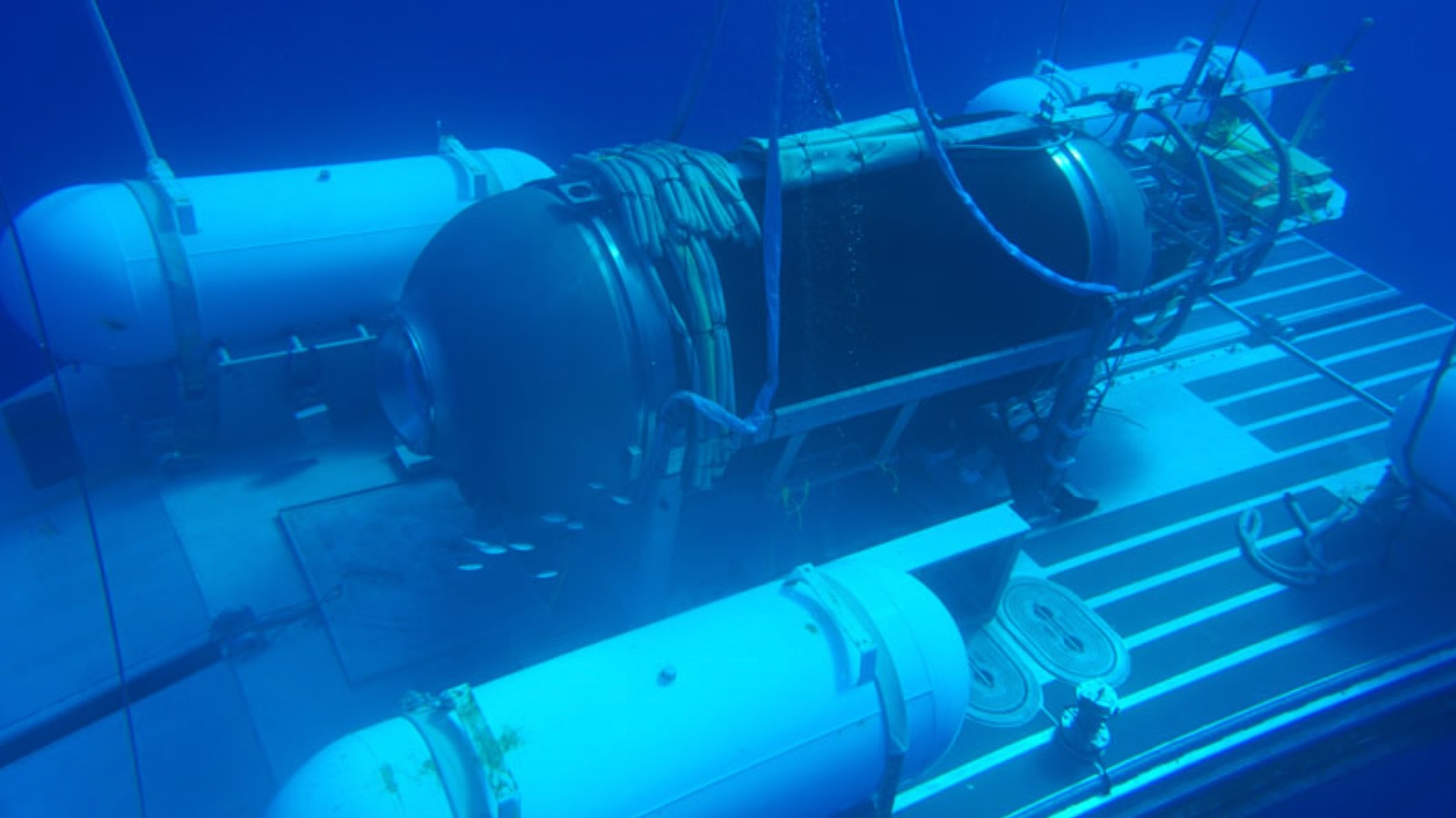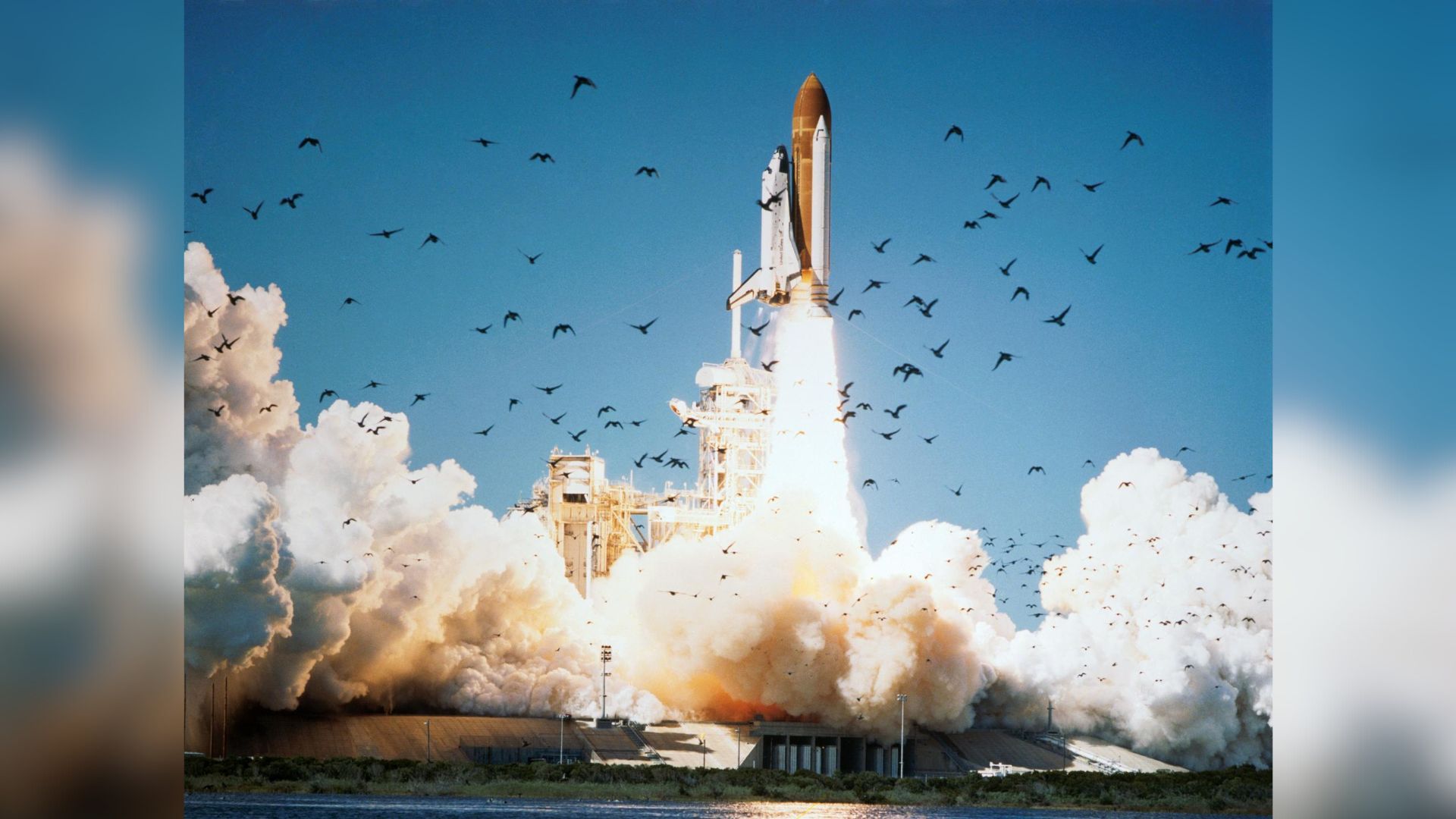Debris from missing submersible found near Titanic, crew of 5 — including space tourist — presumed dead

The search for the missing Titanic submersible is over, and the story does not have a happy ending.
The 22-foot-long (6.7 meters) vehicle, named Titan, went missing on Sunday (June 18) with five people on board while on a dive to explore the wreck of the Titanic. Rescue and recovery teams have worked feverishly over the past five days to find signs of the submersible, and they encountered some today (June 22).
"This morning, an ROV, or remote operated vehicle, from the vessel Horizon Arctic discovered the tail cone of the Titan submersible approximately 1,600 feet [490 meters] from the bow of the Titanic on the seafloor," Rear Adm. John Mauger of the U.S. Coast Guard said during a press conference today.
"The debris is consistent with the catastrophic loss of the pressure chamber," Mauger added. "On behalf of the United States Coast Guard and the entire unified command, I offer my deepest condolences to the families. I can only imagine what this has been like for them, and I hope that this discovery provides some solace during this difficult time."
Related: 10 extraordinary ocean worlds in our solar system (photos)
The five people who lost their lives on the Titan are Stockton Rush, founder and CEO of OceanGate, the company that operated the submersible; explorer and former French Navy diver Paul-Henry Nargeolet; businessman and explorer Hamish Harding; Shahzada Dawood, vice chairman of the Pakistan-based conglomerate Dawood Hercules Corporation; and Dawood's 19-year-old son, Suleman.
Shahzada Dawood was a trustee of the SETI (Search for Extraterrestrial Intelligence) Institute in Mountain View, California. Harding flew to suborbital space with Jeff Bezos' rocket company Blue Origin in 2022.
Breaking space news, the latest updates on rocket launches, skywatching events and more!
Harding and Nargeolet were members of the Explorers Club. The New York City-based group's president, Richard Garriott, mourned the loss of the duo and their three crewmates shortly after the Titan debris was found.
"Hamish Harding is a dear friend to me personally and to The Explorers Club. He holds several world records and has continued to push dragons off maps both in person and through supporting expeditions and worthy causes," Garriott, who traveled to the International Space Station as a paying customer in October 2008, wrote in a memorial blog post today.
"Paul-Henri was elected to the Club in 2001 and was one of the foremost experts on submersible expeditions to the Titanic. They were both drawn to explore, like so many of us, and did so in the name of meaningful science for the betterment of mankind," he added.
Garriott had kind words for Rush and Shahzada and Suleman Dawood as well.
"We're heartbroken for the families, friends and colleagues of those who were lost," Garriott wrote. "Their memories will be a blessing and will continue to inspire us in the name of science and exploration."
OceanGate's space connections extend beyond the activities of Harding and Shahzada Dawood. For example, planetary scientist Alan Stern, who leads NASA's New Horizons mission to Pluto and the outer solar system, went on a Titanic dive with the company in 2022.
Former NASA astronaut Scott Parazynski descended into the depths aboard Titan as well, and he joined OceanGate's board of directors in 2022. And engineers at NASA's Marshall Space Flight Center consulted on some aspects of the submersible's design, OceanGate said last year.
Getting to the Titanic, which went down during its maiden voyage in 1912 after striking an iceberg, is difficult to do. The famed wreck sits about 2.4 miles (3.8 kilometers) beneath the waves of the North Atlantic. It wasn't discovered until 1985.

Michael Wall is a Senior Space Writer with Space.com and joined the team in 2010. He primarily covers exoplanets, spaceflight and military space, but has been known to dabble in the space art beat. His book about the search for alien life, "Out There," was published on Nov. 13, 2018. Before becoming a science writer, Michael worked as a herpetologist and wildlife biologist. He has a Ph.D. in evolutionary biology from the University of Sydney, Australia, a bachelor's degree from the University of Arizona, and a graduate certificate in science writing from the University of California, Santa Cruz. To find out what his latest project is, you can follow Michael on Twitter.
